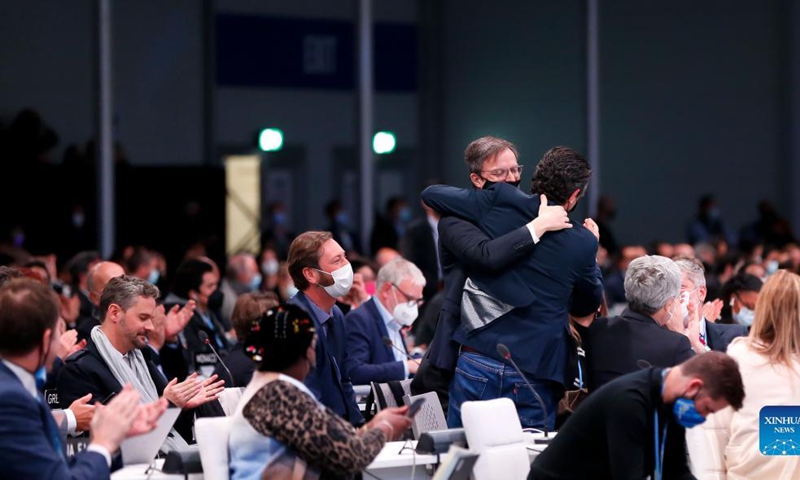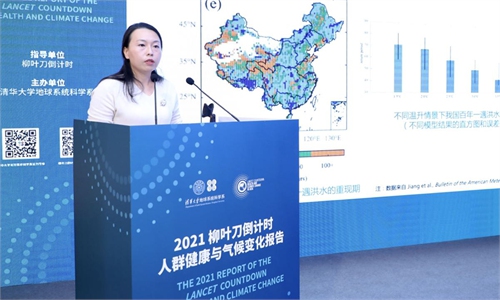‘Global Risks Report 2022’ released
Climate change, social divides and uneven recovery major concerns

Two delegates embrace each other during the closing plenary of the 26th session of the Conference of the Parties (COP26) to the United Nations Framework Convention on Climate Change in Glasgow, the United Kingdom, Nov. 13, 2021.Photo: Xinhua
As the world enters the third year of the pandemic, the climate crisis, growing social divides, heightened cyber risks and uneven global recovery are the top global risks in 2022, the World Economic Forum (WEF) said in a new report published on Tuesday.
The "Global Risks Report 2022" warns that five of the top 10 global risks are environment-related, including climate action failure, extreme weather and biodiversity loss. Meanwhile, the main short-term global concerns include the erosion of social cohesion, livelihood crises and infectious diseases.
"We've seen what can happen when there is public-private collaboration, when we put our faith in science and technology, and when there is global coordination. The result of that was developing a vaccine for COVID-19," Saadia Zahidi, the WEF's managing director, told Xinhua in a virtual interview following the release.
"Now, if we can do that for one specific and very urgent area, we can do the same thing for other areas that require urgent attention, and that includes climate change. There are a number of technologies that are now available; it's really about making that green transition."
Now in its 17th edition, the latest annual report from the Geneva-based forum urges leaders to adopt a coordinated, multi-stakeholder response, and create policies that manage risks and resolve systemic issues. "Half of the world is still not vaccinated, and half of the world still does not have access to the internet," Zahidi stressed. "We're seeing a rising divergence between the developing world and the developed world."
"It's really about working out who has the best possible models that help governments move out of a constant focus on the emergency situation, towards building recovery and investing in resilience."
"That is where I think the experiences of economies and pulling together the economic, social and green agendas closer together. That's where the proof point is going to lie. And those are the models that the rest of the world have to emulate," she added.
The report, which has been developed with the WEF's strategic partners Marsh McLennan, SK Group and Zurich Insurance Group, also warns that global economic recovery from COVID-19 will be uneven and potentially volatile in the coming years. A global survey of experts found that only 1 in 6 is optimistic, and only 1 in 10 believes that global recovery will accelerate.
The economic fallout of the pandemic and diverging levels of recovery also continue to threaten cooperation on other global challenges, at a time when climate and environmental risks loom large, the report emphasizes.

